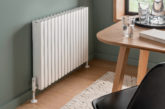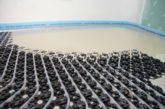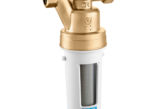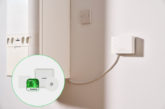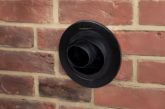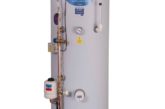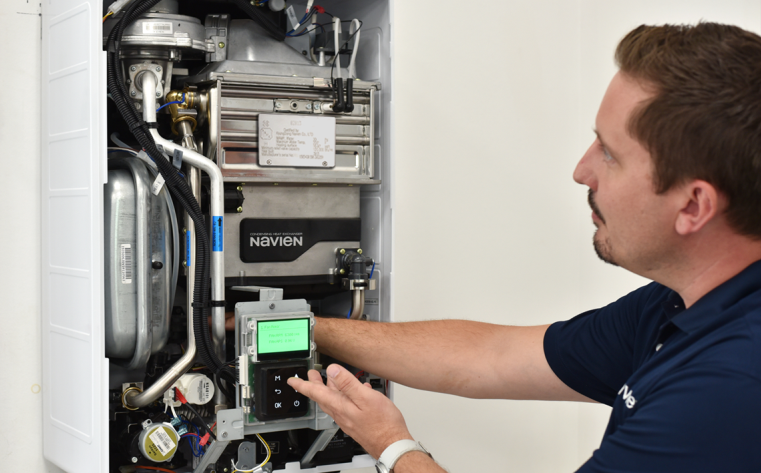
Sean Keleher, National Technical Manager at Navien, looks at the important role boiler servicing and maintenance has to play in ensuring heating and hot water systems run efficiently and economically.
As outside temperatures plummet at the time of writing, keeping heating and hot water systems running efficiently and effectively remains paramount. Of course, given recent rises in energy prices, end users will also have an eye on running costs, so will be keen to achieve the best of both worlds. This is where installers are able to step in, by ensuring their customers’ boilers are regularly serviced and maintained. Doing so will keep heating systems operating at optimum levels, without compromising on efficiency or cost-effectiveness.
The benefits of annual servicing are well-known – particularly in terms of preventing dust or debris from accumulating inside the boiler. Not only does this aid efficient running, it also helps reduce fuel consumption, in turn reducing emissions and energy costs.
No matter the age of a boiler, it is still a service engineer’s responsibility to make sure it is working safely and efficiently. Indeed, annual servicing is usually a necessity when fulfilling the requirements of most manufacturers’ warranties, which would otherwise be invalidated. Installers should remind customers to have their boilers serviced every year, so that this does not become an issue.
Visual checks
During a gas boiler service, engineer should always follow the manufacturer’s instructions, as well as undertake a visual inspection and look for any signs or evidence of water leaks inside the casing. They should also check there are no small signs of distress or possible leaks, particularly on the diverter valves, plate-to-plate heat exchanger, main heat exchanger, pump and pipework.
Identifying any potential faults before they progress will help prevent them worsening and causing long-term damage. Engineers should also check that any expansion vessels have the required amount of pre-charged air inside them, to prevent any over-pressurisation issues and stop the pressure relief valve (PRV) from leaking due to loss of charge.
At Navien, we also recommend checking the inhibitor chemical levels in the central heating system are correct, to help provide ongoing protection against the potential build-up of corrosion and limescale. Should there be a magnetic system filter fitted, this should be isolated and cleaned out accordingly.
Flue readings
To ensure gas safety, flue gas analyser readings should be taken and compared with the manufacturer’s recommended levels in terms of the CO/CO2 combustion ratio for gas (in gas boilers this is less than 0.0040) to confirm the boiler is working to its optimum level of efficiency. All service details must then be recorded on the Benchmark Service and Interim Boiler Work Record in the boiler manual and left with the end user.
Both flue termination and the flue route must also be checked – the latter for its entire length (including the joints) from the boiler to the outside of the property. Any obstructions must be removed from the terminals and the flue should be safely fitted. In addition, the flue, ventilation and gas rates must be correct for efficient boiler combustion. Checking the flue integrity ensures it is functioning correctly – and that no harmful exhaust gases are escaping.
Check controls
Furthermore, engineers should doublecheck any controls are functioning correctly, both in terms of their mechanical operation and also in meeting the heating and hot water requirements of the property where they are fitted. Devices should be programmed to maximise efficiency, maintaining a comfortable temperature when required, without wasting energy.
Upon completing a service, engineers should also advise their customers on how to best maintain their boiler to keep it in top condition – including checking the pressure/temperature gauge daily, as well as making sure there are no leaks in the pipework or condensate drain.
Modern boilers, such as Navien’s NCB700 ON (which can supply hot water for up to three showers simultaneously), make fault-finding and maintenance simple, thanks to a text-driven display which can run a series of test procedures for a full system diagnosis. An ‘error history’ option allows a list of the ten most recent errors – including error details and the simple countermeasures available – to be displayed on the screen, while the boiler manual explains any fault codes. Product-specific diagnostics will also be covered in manufacturers’ training courses.
So, as winter sets in and people rely more on their central heating systems across the country, it falls upon installers to ensure their customers’ boilers remain operational, cost-effective and efficient. By encouraging and conducting regular servicing, modern boilers will continue to perform at their optimum potential, without compromising performance.



